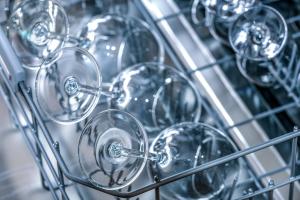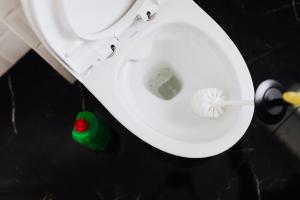
For tea lovers, the perfect cup of tea is an art form. From selecting the finest leaves to controlling the water temperature, every detail matters. However, one often overlooked factor that can greatly impact the flavour and quality of your tea is the type of water used.
In particular, hard water, which contains a high mineral content, can present a unique challenge. Hard water can have a noticeable impact on the taste, appearance, and overall quality of brewed tea, as well as cause damage to your kettle.
To help you enjoy the perfect cuppa, we will explore how hard water affects tea and discuss some tips to overcome its adverse effects.
Understanding Hard Water
Hard water is formed when water passes through deposits of calcium and magnesium minerals, such as limestone and chalk. These minerals give the water a high mineral content, affecting its taste, appearance, and chemical properties. While hard water is not harmful to consume, it can significantly alter the taste and characteristics of brewed tea.


Does Hard Water Make Tea Taste Bad?
Hard water can cause a few different issues that affect the taste of tea. Because hard water contains a high concentration of minerals, it can prevent the tea leaves from fully infusing and extracting their flavours, resulting in a weaker and less flavorful cup of tea.
In addition, when you brew tea using hard water, these minerals can interact with the compounds in tea, such as tannins, catechins, and polyphenols, altering their flavours and creating an undesirable taste. The minerals in hard water can make the tea taste bitter, astringent, or metallic. They can also dull the natural flavours and aromas of the tea, making it less enjoyable.
Hard Water Can Make Tea Appear Cloudy
Hard water can affect the appearance of your tea. When brewing with hard water, you may notice a cloudy or murky appearance, as the minerals can react with the tea compounds and form insoluble precipitates. This can be particularly unsightly when enjoying light-coloured teas like green or white tea.


Hard Water Can Reduce the Aroma of Tea
The presence of minerals in hard water can also diminish the aromatic qualities of tea. The minerals can bind to the volatile compounds responsible for the tea's aroma, leading to a less fragrant and less enjoyable drinking experience.
Hard Water Can Cause a Residue or Film on Tea
Hard water can leave behind a residue or film in your tea, which is unsightly and might affect your full enjoyment of a cup of tea. In addition, hard water causes limescale buildup in kettles, and limescale flakes may also end up floating in your tea.


How to Save Tea From Hard Water
While it may seem discouraging, there are several ways to minimise the impact of hard water on your tea:
Use a Water Softener
To mitigate the effects of hard water on tea, some people prefer to use soft water, which has a lower mineral content. You can turn your hard water into soft water by installing a water softener system in your home. It works by filtering out the calcium and magnesium through ion exchange, leaving you with water that is softer.
Use a Water Filter
You can also use a water filter, such as activated carbon or reverse osmosis system, to remove the excessive minerals and impurities from the water. This can help improve the taste and appearance of your brewed tea.
Add in Lemon Juice
Adding a small amount of lemon juice to hard water can help neutralise the minerals and reduce their impact on tea flavour, which can be nice for herbal or earl grey teas.
The water you choose for brewing tea plays a vital role in the overall taste and quality of your cup. By understanding the challenges posed by hard water and employing appropriate techniques like filtration or water softening, you can overcome these obstacles and enjoy a more delightful tea experience. Remember, the perfect cup of tea lies not only in the leaves but also in the water that brings them to life.
Get in touch with our water experts to discover the best solution for your home or building.








